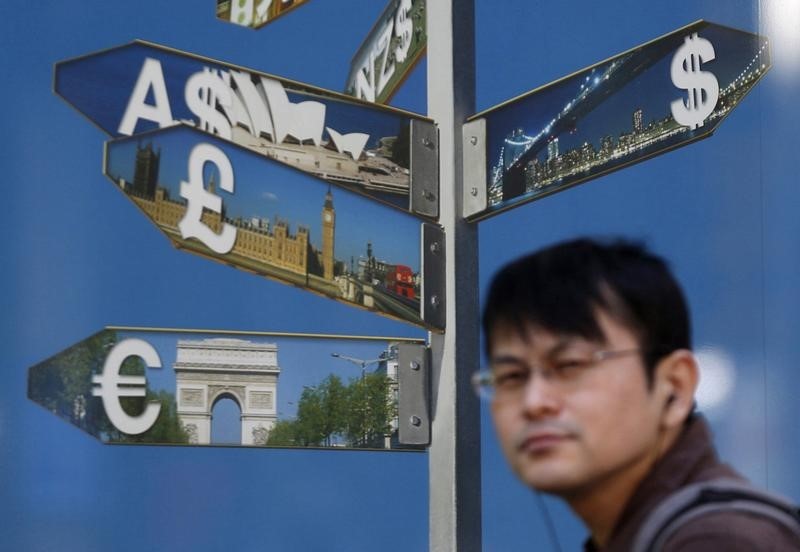(Bloomberg) -- When the shock of Germany’s top-court ruling on the European Central Bank bond-buying program subsides, policy makers should find that arguing their way out of a tight spot isn’t so hard.
The constitutional court’s demand on Tuesday that the ECB justify its multi-trillion-euro bond-buying plan within three months took investors and economists by surprise. They largely expected Germany to follow the assessment by the European Union’s highest tribunal that the program is legal.
Read more: Defiant ECB Pledges Full Commitment After German Ruling on QE
Instead, the judges cited numerous arguments against ultra-loose monetary policy, including that it unduly benefits the banks, supports zombie firms, and penalizes savers.
Yet those charges have already been tested by researchers, and the ECB has published hundreds of pages on the impacts of its crisis-fighting measures.
Here’s a look at the chief accusations, and the likely rebuttals.
Inflation Obsession
“By unconditionally pursuing the PSPP’s monetary policy objective – to achieve inflation rates below, but close to, 2% – while ignoring its economic policy effects, the ECB manifestly disregards the principle of proportionality.”
Price stability is the ECB’s primary mandate, and the bond-buying program is intended to help revive inflation after years of undershooting the prescribed goal.
One of the court’s key criticisms is that it’s not clear if the scale of purchases is proportionate to the risks of crossing the line between monetary and fiscal policy, which would be illegal.
The ECB said in a 2009 paper that the Bundesbank’s focus on fighting inflation as well as its methods helped it earn a reputation as one of the most successful central banks in the second half of the 20th century.
Executive Board member Isabel Schnabel, herself German, noted in February that Germany insisted on price stability being the primary objective when the institution was established. She argued that ECB policies have boosted both inflation and growth.
That speech -- criticizing the “false narratives” in her homeland over ECB policy -- was delivered in Karlsruhe, home of the constitutional court.
Expropriating Savers
“The economic policy effects of the public-sector purchase program furthermore include its economic and social impact on virtually all citizens, who are at least indirectly affected, inter alia as shareholders, tenants, real estate owners, savers or insurance policy holders. For instance, there are considerable losses for private savings.”
The claim that low interest rates -- which bond purchases help create by flooding the financial system with cash -- rob savers of their pension income is widespread in Germany. It’s touted by politicians and splashed across the front pages of newspapers and magazines.
Even Bundesbank President Jens Weidmann has pushed back against that, reminding his compatriots that they “are not just savers: they’re also employees, taxpayers, and debtors, as such benefiting from the low level of interest rates.”
His institution found in a 2016 study that allegations that monetary stimulus increases inequality -- for example by boosting real estate and stock prices -- “cannot be substantiated.” An ECB paper in 2018 concluded that negative interest rates and large-scale bond purchases have helped cut unemployment, especially at the lower end of the pay scale.
Protecting Zombies
“As the public sector purchase program lowers general interest rates, it allows economically unviable companies to stay on the market.”
As recently as November, two ECB economists used one of Germany’s most-popular newspapers to call the assumptions linking central-bank stimulus to corporate zombification “theoretically incomprehensible” and “empirically doubtful.”
They noted that while all companies potentially benefit from low interest rates, the ultimate lending decisions lie with banks, who have strong incentives not to extend credit to questionable businesses.
Researchers such as Ernest Liu and Atif Mian from Princeton University and Amir Sulfi from the University of Chicago Booth School of Business have argued that weaker companies profit less from low rates than leading firms, as the latter invest more to keep competition at bay.
A Danish study in January showed that despite the world’s lowest official interest rates there, the number of so-called zombie firms has fallen.
Boosting Banks
“The public sector purchase program also affects the commercial banking sector by transferring large quantities of high-risk government bonds to the balance sheets of the Eurosystem, which significantly improves the economic situation of the relevant banks and increases their credit rating.”
Many bank executives would certainly disagree that the ECB helps them -- they repeatedly and vociferously complain that ultra-low rates hurt their profit margins.
The reality may be more complicated.
Sovereign bonds are generally some of the safest and most-highly rated assets banks keep on their books. In buying them, the ECB is trying to encourage lenders to invest in other, more risky securities -- extending financing to sectors that would otherwise face difficulties to secure funding, and lowering interest rates across the board.
A working paper from the Bank for International Settlements found in 2018 that unconventional policies such as bond buying largely increased the fragility of banks in euro-area countries that were hardest hit by the 2011 debt crisis.
The gains have gone mostly to banks in the so-called core countries such as France, the Netherlands -- and Germany.
©2020 Bloomberg L.P.

